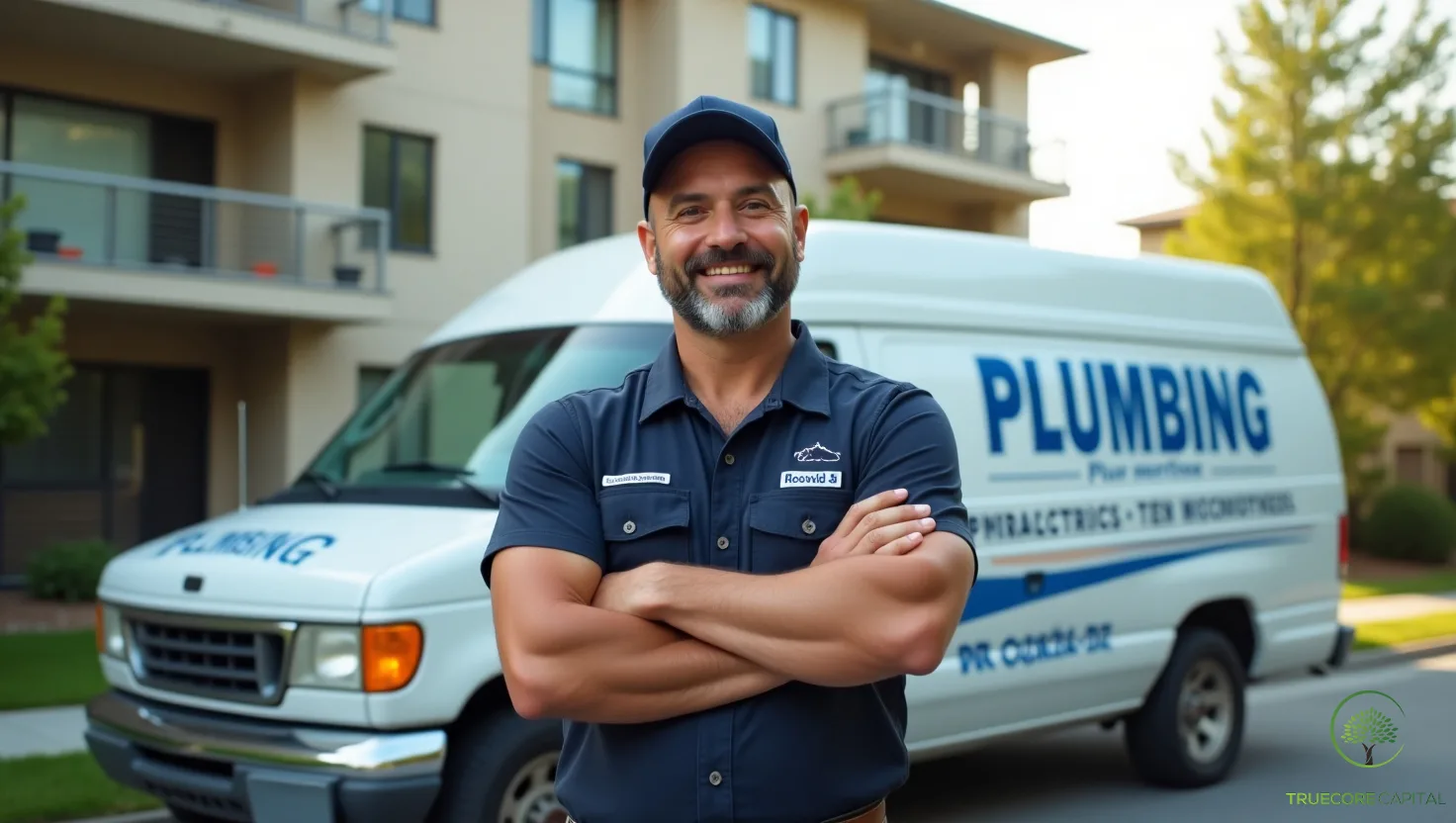
Success in the plumbing sector frequently depends on being organized and adaptable. Just as important as having the appropriate tools is having the appropriate transportation. In addition to being used for transportation, a plumber’s vehicle serves as a mobile workstation, a well-organized tool and part storage space, and a moving billboard that promotes the company wherever it goes.
Depending on the size and nature of the task, different kinds of vehicles fulfill different purposes. Every vehicle has a different set of advantages, ranging from small service vans that are perfect for home calls to bigger box trucks for commercial use or tough utility trucks for off-road construction sites. By selecting the appropriate kind, plumbers can increase productivity, cut down on delays, and project a more polished image while working.
The plumbing industry’s profitability makes this investment in the appropriate vehicle all the more crucial. Purchasing a car that is appropriately equipped might instantly result in higher revenue because there is still a considerable demand for plumbing services and profit margins are typically large, particularly for specialized or urgent work. The correct vehicle is a crucial component in creating long-term success since effective service delivery results in more projects finished, happier customers, and more recurring business.
1. Service Vans
Overview:
The plumbing industry’s workhorses, service vans are frequently the preferred option for light business and residential tasks. These enclosed vehicles are made to be both small enough to operate easily in cities and roomy enough to accommodate a variety of plumbing supplies, tools, and equipment. Service vans can be completely furnished with ladder racks, bins, shelves, and safe storage spaces inside, transforming the vehicle into a productive mobile workshop. This arrangement improves job efficiency by reducing time spent looking for parts and aiding in organizing.

Popular Models:
Advantages:
Best For:
Residential service calls, emergency plumbing repairs, routine maintenance work, and light commercial jobs. Service vans are especially useful for plumbing businesses that handle multiple daily appointments and need to keep everything organized, accessible, and professional-looking while on the go.
2. Box Trucks (Cutaway Vans)
Overview:
For plumbing companies that need more storage and functionality than a standard service van can provide, box trucks—also known as cube vans or cutaway vans—are a great choice. These cars clearly distinguish between the driver’s area and the workplace thanks to a distinct, box-shaped cargo section that is affixed to the cab chassis. Extensive customization is possible in the spacious, open cargo area, which is perfect for moving bulky items like water heaters, jetting machines, big pipe fittings, and even mobile workbenches. To cut down on setup time on-site, a lot of plumbing contractors also employ box trucks to hold pre-assembled kits or modules for particular work types.

Popular Models:
Advantages:
Best For:
Commercial plumbing, remodeling projects, new construction plumbing, and team-based assignments that require a well-equipped mobile base of operations. These vehicles are particularly valuable for companies that handle large-scale or multifaceted jobs and need to maintain efficiency without constantly restocking from a central warehouse.
3. Utility Trucks (Service Body Trucks)
Overview:
Built on the chassis of regular pickup trucks, utility vehicles—also referred to as service body trucks—are equipped with specially designed utility beds that have several external compartments. Without having to travel inside an enclosed cargo area, these compartments offer easy and efficient access to tools, fittings, and supplies. Utility trucks, which are built for toughness and adaptability, are particularly well-liked by plumbers who operate on construction sites, in rural locations, or on uneven terrain where efficiency and agility are crucial. When properly configured, these vehicles function as mobile workshops that can manage demanding tasks in difficult settings.
Popular Models:
Advantages:
Best For:
New construction, off-road job sites, large-scale installations, and plumbing jobs in remote or undeveloped areas. Utility trucks are the preferred choice for plumbers who need both mobility and muscle, especially when working in environments that demand durable, high-performance vehicles with ample storage and tool accessibility.
4. Pickup Trucks with Toolboxes
Overview:
For plumbers who don’t need a full-service van or box truck, pickup vehicles equipped with mounted toolboxes or ladder racks offer a convenient and affordable option. For specialists, independent contractors, or people who mostly handle light-duty or one-time service calls, this configuration is perfect. The toolboxes, which are usually positioned behind the cab or along the bed rails, provide safe, orderly storage for necessary equipment and small parts, while the open-bed design gives you flexibility for moving longer things like conduit, ladders, or pipes. Plumbers who add a trailer to their setup in order to transport larger or more cumbersome equipment will also find this minimalist method to be a suitable fit.
Popular Models:
Advantages:
Best For:
Independent plumbers, rural service calls, light-duty plumbing jobs, or as a supplementary vehicle in a larger fleet. Pickup trucks with toolboxes are especially useful for niche services such as inspections, diagnostics, or installations that don’t require a full arsenal of tools and materials. They offer the perfect blend of mobility, utility, and efficiency for plumbers who want flexibility without sacrificing functionality.
5. Trailers
Overview:
For plumbing professionals who need to move huge, specialized equipment or need more cargo room, utility trailers are a very adaptable option. Trailers, which are usually used in conjunction with pickup trucks, have the advantage of increased capacity without requiring the towing vehicle to be permanently modified. They are especially helpful for tasks like trenchless sewer repair, hydro jetting, or septic system installation that need heavy equipment or messy procedures. Plumbers can increase efficiency and cut down on needless transportation by using trailers, which are detachable, to safely leave equipment on-site and return with only the towing vehicle.
Types:
Advantages:
Best For:
Specialty contractors, large-scale or multi-day plumbing jobs, and equipment-intensive services such as pipe relining, hydro excavation, or sewer inspection. Trailers are also a great choice for companies wanting to scale without investing in an entirely new vehicle for every function.
Choosing the Right Vehicle
When choosing a plumbing vehicle or trailer setup, it’s important to align the choice with the scope and demands of your business.

For any plumber, picking the appropriate car is an important choice. It is more than just a means of transportation; it is a billboard, a tool shed, and a mobile office. Your efficiency, the range of services you may provide, and how customers view your company are all directly impacted by the kind of vehicle you choose. Having the right car guarantees that you can do high-quality work quickly and dependably, whether you’re traversing urban streets or providing services in rural places.
Plumber vehicles come in a variety of forms, each appropriate for a particular use. Because of their easy customization and enclosed storage, service vans are a popular choice for residential maintenance. Box trucks are perfect for commercial jobs since they offer even more room for supplies and equipment. For harsher or off-road conditions, utility trucks and pickup trucks with toolboxes provide tough adaptability. Trailers, on the other hand, can be utilized to move bulky or specialist equipment, giving larger projects or specialized services more flexibility.
Purchasing the appropriate car might be expensive, particularly if you want to add shelves, racks, and branding. TrueCore Capital can help with that. For trade professionals like plumbers, TrueCore Capital provides customized financing options. TrueCore Capital offers quick approvals and flexible payment choices to help you receive the cars you need without interfering with your cash flow, whether you’re buying your first service van or adding more utility trucks to your fleet.
Knowing the many kinds of plumber cars and matching your investment to your service requirements is crucial, whether you’re starting out alone or expanding your plumbing firm. The correct car and financing partner will put you in a strong position to create a dependable, effective, and polished business that promotes long-term success.
Ready to start your journey? Apply Now! Click Here to Fill out our Online Application